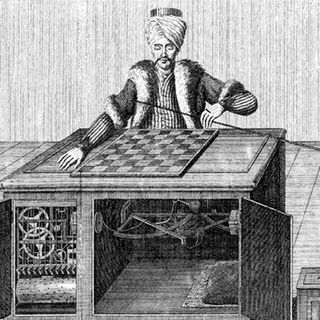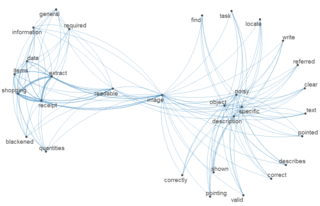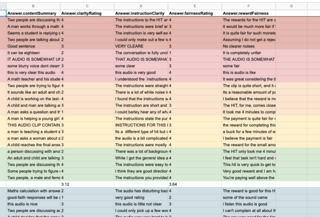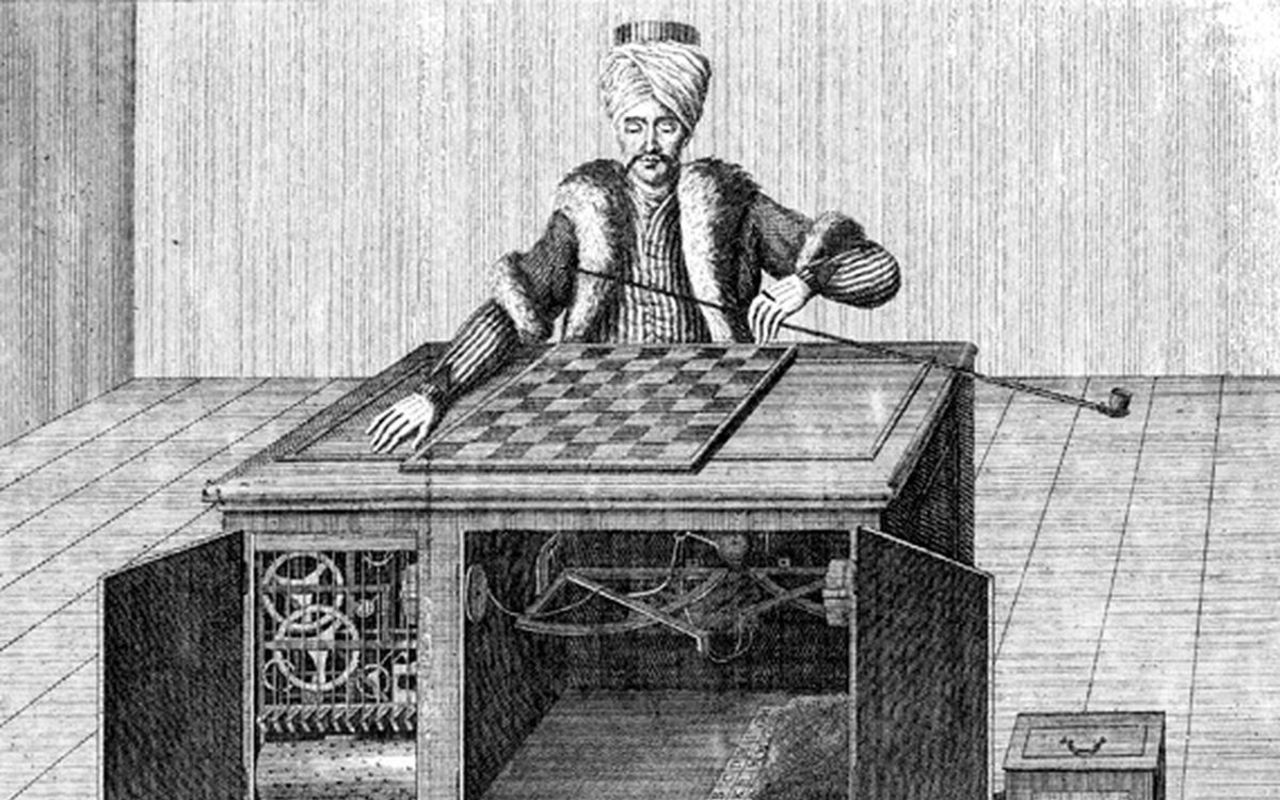Following Mechanical Turks
Articulating the Human in "Human Intelligence Tasks"


Most Recent Episode:
Regular video discussions every other Friday. Next video discussion on November 15 at 11:00 a.m. Eastern.
This Enculturation: Intermezzo research project analyzes Amazon Mechanical Turk (MTurk) job posts—called Human Intelligence Tasks or HITs—to trace how they rhetorically depict human and nonhuman actants.
The project is an experiment in open, ad hoc scholarly collaboration among multiple humans and non-humans. It is unfolding through regularly scheduled public streaming video sessions as principal investigators Jeremy Tirrell and Nathaniel Rivers move from initial concepts to completed texts. Anyone can participate in these discussions, and several of them include invited guests as the work uncovers issues that would benefit from particular expertise. Video sessions and associated materials—textual exchanges, research documents, relevant links, etc.—are archived here and publicly shared. Manuscript drafts are available online during development and are open to in-progress annotations, with the hope that they will formatively shape a paper's direction, rather than function as post factum comments on a stable text.
Would you like to participate? Join the live streaming video sessions, comment on the manuscript draft, or contact Jeremy and Nathaniel.

Texts
Meta-documents
Project Overview
by Dr. Jeremy Tirrell, Dr. Nathaniel Rivers- This text has 4 annotations
- This text has 0 highlights
Project Credits
by Dr. Jeremy Tirrell, Dr. Nathaniel Rivers- This text has 0 annotations
- This text has 0 highlights
Research Products

Tracing the Human in Amazon Mechanical Turk through Rhetorical Text Mining
by Dr. Jeremy Tirrell, Dr. Nathaniel RiversThis study uses text mining to examine how the language of posts on Amazon’s Mechanical Turk (MTurk), an online global crowdsource marketplace, rhetorically articulates a model of the human that emerges from concrete labor acts rather than abstract moral or ethical capacities. The study analyzes 23,105 documents using multiple operations including weighted frequency counts, clusters and topic models, and frequency co-occurrence and n-gram diagrams at three grain sizes: the whole corpus, posts organized into five tiers based on compensation level, and specific term associations. Findings identify coherent human practices that collapse bodily and intellectual capabilities, but a uniform distinction between humans and non-humans is unresolved, because MTurk posts repeatedly redraw such boundaries, causing characteristic traits to be variably shared.
Published- This text has 1 annotation
- This text has 0 highlights

The Rhetorical Taskscape of Readability Surveys on Amazon Mechanical Turk
by Dr. Jeremy Tirrell, Dr. Nathaniel RiversThis study examines how the complex concept of readability emerges on Amazon’s global online crowdsource marketplace Mechanical Turk (MTurk) through interactions among task requesters, responders (turkers), and non-human elements including algorithms, human-computer interfaces (HCI), and platform conventions. It does this by collating 2,200 surveys in multiple permutations posted to MTurk that asked respondents to produce and evaluate readable summaries of four different types of media content and to provide their perceptions of these tasks. Findings suggest that readability manifests variably on MTurk through alignments of rhetorical elements including metadiscourse, enthymeme, and exigence. The study interprets these findings using Timothy Ingold’s (1993) anthropological concept of the taskscape, informing the ongoing theorizing of situation in rhetoric studies and helping identify a productive role for the discipline within scholarly conversations about Natural Language Processing (NLP) systems and automated text generation applications.
This research was supported by generous funding from the Charles L. Cahill Grant through the University of North Carolina Wilmington and the Stolle Award through the Saint Louis University College of Arts and Sciences.
This study was approved by the University of North Carolina Wilmington Institutional Review Board (#21-0211).
Published- This text has 0 annotations
- This text has 0 highlights
Drafts
- This text has 8 annotations
- This text has 0 highlights
Resources
Resource Collections
Single Resources
Image PDF A sample compensation keyness diagrams
Image Bigram network graph unweighted
Image Bigram network graph weighted
Video Computers and Composition Conference Talk (6-22-19)
Image Cookie Theft Picture
Video Dr. Benjamin Hanrahan on human-computer interfaces' persuasive functions
Video Dr. Casey Boyle on distinctions emerging from interactions
Video Dr. Casey Boyle on the name “Mechanical Turk”
Video Dr. Casey Boyle on the variable roles for humans and non-humans when producing readability
Metadata
- publisherEnculturation: Intermezzo
- rightsThis text is licensed under a CC BY-NC-ND 4.0 license.
We use cookies to analyze our traffic. Please decide if you are willing to accept cookies from our website. You can change this setting anytime in Privacy Settings.

